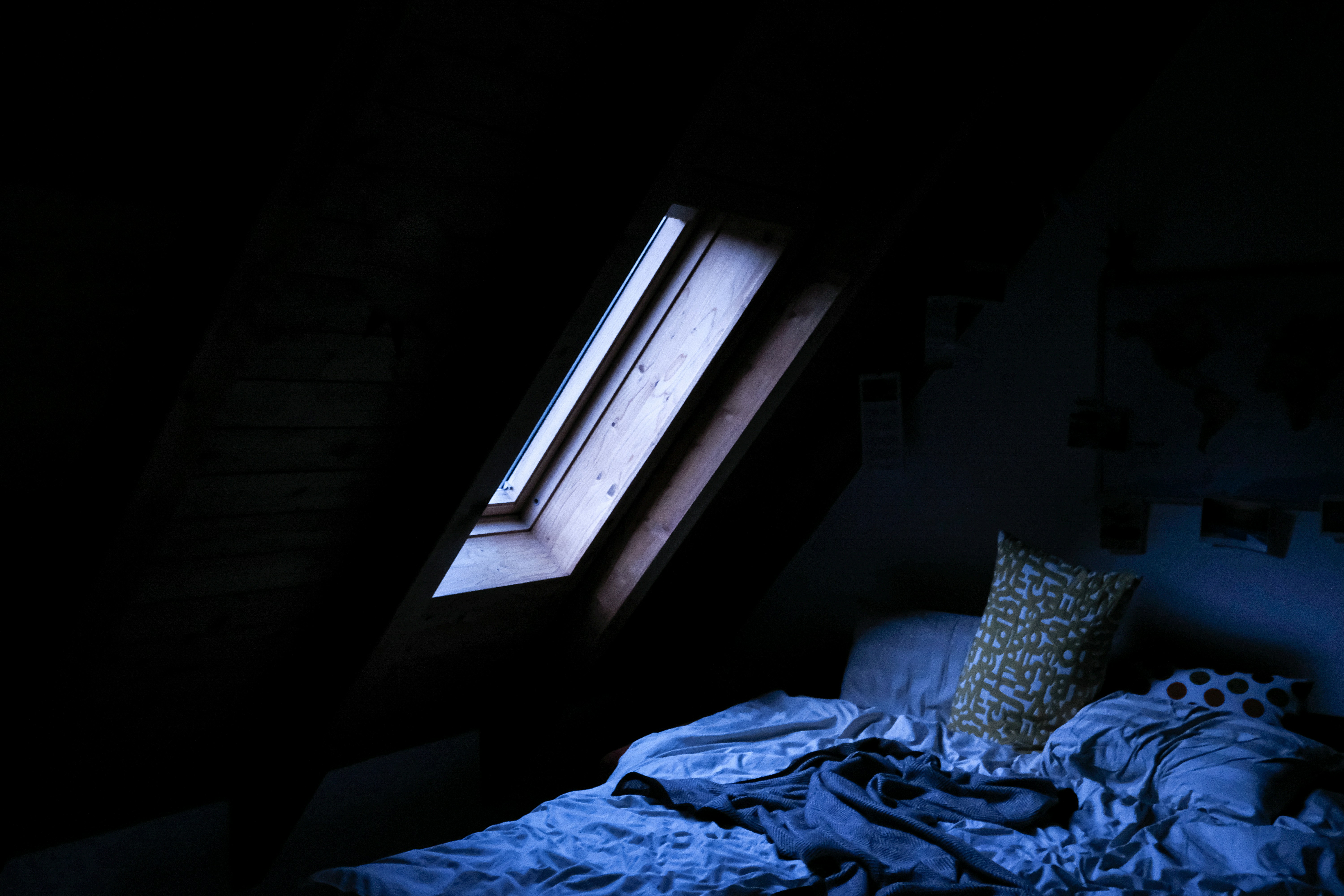Lede: Your ears don’t clock out at bedtime—but your brain does a vital night shift. Growing research shows that how you sleep can change how you hear, how loud your tinnitus feels, and how much energy listening costs you tomorrow. Here’s the science—plus practical steps to wake up to clearer, calmer hearing.
The Big Idea: Your Hearing Has a Night Shift
Sleep isn’t just “off time.” It’s an active maintenance window for the brain systems that decode sound, filter noise, and turn a crowded room into meaningful conversation. When sleep is short or fragmented, people often report:
- More effort to follow speech, especially in noise
- Higher tinnitus annoyance or loudness
- Sound sensitivity or irritability
- Listening fatigue by afternoon
Scientists are uncovering why. The auditory system—from inner ear hair cells to the cortex—shows daily rhythms. At night, the brain prunes and strengthens synapses (your neural “wiring”) and resets attention networks. Lab studies suggest the inner ear itself follows circadian patterns, changing how it handles sound and oxidative stress across a 24-hour cycle. In short: sleep helps your hearing recover, recalibrate, and get ready for tomorrow’s soundscape.
What the Science Says (in Plain English)
1) Your brain’s “sound filters” refresh overnight
During deep sleep, the brain consolidates learning and rebalances synapses. For hearing, that likely improves:
- Speech-in-noise processing: Better top-down filtering so important voices stand out from background clatter.
- Auditory attention and working memory: The mental bandwidth you need to track fast conversation.
- Listening effort: Well-rested neural circuits work more efficiently, so you burn less fuel to understand speech.
2) Tinnitus and sleep are a two-way street
Poor sleep can make tinnitus seem louder and more intrusive the next day; intrusive tinnitus can make it hard to fall or stay asleep. That feedback loop amplifies distress. The good news: improving sleep often reduces tinnitus burden, even if the underlying sound doesn’t disappear. Behavioral sleep strategies and sound enrichment at night are two of the best-supported, low-risk approaches.
3) Shift work and all-nighters stress the auditory system
Night shifts and rotating schedules disrupt circadian rhythms. Over time, that can elevate stress hormones, blood pressure, and inflammation—factors also linked with age-related and noise-induced hearing changes. If you work nights, protecting your ears from loud environments and prioritizing daytime sleep becomes doubly important.
4) Sleep apnea is linked with hearing problems
Obstructive sleep apnea (OSA) reduces oxygen and fragments sleep. Large population studies have found associations between OSA and hearing loss and with tinnitus. While we don’t yet have proof that treating OSA restores hearing, managing apnea improves cardiovascular health and daytime alertness—both friends of healthy listening. If you snore loudly, wake unrefreshed, or your bed partner notices breathing pauses, ask your primary care clinician about a sleep evaluation.
Nighttime Tinnitus: Why It Gets Louder (And What Helps)
When the house gets quiet, your brain expects external sound. In silence, it can turn up the gain (like a stereo with no input), pulling the internal tinnitus signal into the spotlight. Add stress about not sleeping, and your arousal system fires up—more adrenaline, more attention to the sound, less sleep.
Here’s how to short-circuit that loop:
- Bring back gentle sound: A bedside sound machine, fan, or app with soft broadband noise or nature sounds at a low volume gives your auditory system something neutral to latch onto. Keep it just below the level of your tinnitus so your brain can relax without “chasing” silence.
- Schedule worry time earlier: Write down next-day to-dos after dinner. Your brain is less likely to use bed as a planning meeting.
- Consistent wind-down: A 20–30 minute routine—dim lights, stretch, read paper pages—teaches your nervous system that quiet time is safe time.
- CBT-I strategies: Cognitive Behavioral Therapy for Insomnia helps re-train sleep and reduce anxiety about not sleeping; it can also lower tinnitus distress for many people.
Melatonin, White Noise, Earplugs: Sorting the Tools
Melatonin
Melatonin is a hormone your brain releases at night. Some small studies suggest melatonin may improve sleep quality for people with tinnitus, and a few have reported reduced tinnitus annoyance. The overall evidence is still limited and mixed.
- If you try it: Start low (e.g., 0.5–1 mg about 1–2 hours before bed). More isn’t necessarily better. Discuss with your clinician if you take other medications, are pregnant, or have health conditions.
- Don’t rely on pills alone: Light exposure and behavior are the primary sleep levers. Use melatonin, if at all, as a short-term nudge while you fix routines and lighting.
Sound enrichment (white/pink/brown noise)
These can be sleep-savers for tinnitus by masking or blending the internal sound:
- Volume: Keep it low and soothing—just enough to soften tinnitus and fade into the background.
- Timbre: Many people find “pink” or “brown” noise less harsh than bright white noise.
- Safety: Avoid in-ear buds while sleeping to reduce earwax buildup and pressure on the ear canal. A bedside speaker at modest volume is safer.
Earplugs at night
Earplugs can be helpful if your sleep is disrupted by a snoring partner or city noise. However, total silence can make tinnitus more noticeable, and nightly earplug use can push earwax deeper.
- Tip: If you need earplugs, pair them with very soft background sound via a speaker. Use clean, comfortable plugs and give your ears a break when you can.
Sleep Hygiene (Ears Edition): Practical Steps That Help
These aren’t fancy—but they’re powerful. Try stacking a few at a time for 2–3 weeks.
- Guard your sleep window: Aim for 7–9 hours in bed around the same times daily. Your auditory system likes consistency.
- Morning light, evening dim: Get bright outdoor light within an hour of waking; dim lights and screens 60–90 minutes before bed. Light is your melatonin “thermostat.”
- Quiet the caffeine curve: Cut caffeine after lunchtime; it sticks around and fragments sleep.
- Move your body: Daytime activity improves deep sleep and listening stamina. Finish vigorous exercise at least 3 hours before bed if it revs you up.
- Wind-down ritual: Gentle stretch, breathwork, or a warm shower signals “off duty.”
- Bedroom soundscape: Keep room noise steady and soft. If traffic spikes wake you, consider a constant low-level sound machine to smooth peaks.
- Cool, dark, quiet: 60–67°F (15–19°C), blackout curtains, and minimizing sudden noises can help you stay asleep.
If You Work Nights or Rotate Shifts
Your circadian system is doing gymnastics. Help it along with structure:
- Protect daytime sleep: Blackout curtains, eye mask, and a fan or sound machine to block daytime noise.
- Light strategically: Wear dark sunglasses on the commute home; then bright light when you wake for your “morning,” even if it’s 5 p.m.
- Ears on the job: If your workplace is loud, double down on hearing protection (well-fitted earplugs or earmuffs) and take quiet breaks. Night shifts plus noise exposure is a one-two punch.
When to Call in the Pros
Self-care goes far. But teamwork is better.
- Audiologist: If tinnitus or hearing difficulty is stealing sleep or daytime focus, an audiologist can assess your hearing, fit sound therapy options, and coach evidence-based coping strategies. If you use hearing aids, nighttime programs and daytime fine-tuning can reduce listening effort that cascades into the night.
- Sleep clinician: If you have loud snoring, witnessed apneas, morning headaches, or wake unrefreshed despite plenty of time in bed, talk with your primary care clinician about obstructive sleep apnea. Treatment (like CPAP) can transform energy and mood—key to hearing health.
- Mental health support: Persistent insomnia or anxiety ramps tinnitus perception. CBT-I and brief therapy can quiet the loop. Ask your clinician for reputable programs, including digital CBT-I.
On the Research Horizon
- Better biomarkers: Scientists are studying ear- and brain-based measures to quantify how sleep loss affects hearing in noise and tinnitus distress—so treatments can be targeted.
- Circadian-aware hearing care: Could timing of sound therapy or medication matter? Early work suggests the auditory system’s daily rhythms may influence outcomes.
- Integrated care models: Combining audiology, sleep medicine, and behavioral health is showing promise for stubborn tinnitus and listening fatigue.
The Takeaway
Your ears and brain don’t just need quiet—they need quality sleep to reset, reduce tinnitus distress, and make sense of tomorrow’s world of words. Start small: a gentler wind-down, softer sound at bedside, consistent lights-out. If sleep, hearing, or tinnitus still feel stuck, an audiologist is a great first stop—and can coordinate with sleep specialists when needed. You’re not imagining the difference a good night makes. Your auditory system is counting on it.
Further Reading
- Hearing Supplements: Hype vs. Help (What Science Says) (Lifestyle) - Your Heart, Your Hearing: The Cardiometabolic Link You Can’t Afford to Ignore (Research) - Long COVID and Your Hearing: What We Know (and What to Do Next) (Research) - Eat, Move, Hear: The Lifestyle Blueprint to Protect Your Ears (Lifestyle)Frequently Asked Questions
Does melatonin help tinnitus?
Melatonin may improve sleep for some people with tinnitus, and small studies have reported reduced tinnitus annoyance in a subset of users. The evidence is limited and mixed. If you try melatonin, start low (around 0.5–1 mg taken 1–2 hours before bed) and discuss with your clinician, especially if you take other medications or have health conditions. Good sleep habits and sound enrichment remain the most important tools.
Are white noise machines safe for sleep?
Yes, when used at low, comfortable volumes. Keep the sound just below your tinnitus or the ambient room noise. A bedside speaker is safer than in-ear earbuds during sleep, which can push earwax deeper and cause pressure on the ear canal. Choose a softer spectrum (pink or brown noise) if white noise feels harsh.
Can treating sleep apnea improve hearing?
Obstructive sleep apnea is associated with hearing problems and tinnitus in population studies, likely through reduced oxygen, inflammation, and vascular stress. Treating apnea improves daytime alertness and cardiovascular health, which supports healthy listening. We don’t yet have definitive evidence that CPAP restores hearing, but managing apnea is still important for overall health and may help with tinnitus burden for some people.
Do earplugs at night make tinnitus worse?
Earplugs can reduce disruptive outside sounds, but total silence can make tinnitus more noticeable. If you use earplugs, pair them with very soft background sound from a bedside machine so your brain isn’t listening into silence. Also, avoid pushing plugs too deep and give your ears breaks to prevent earwax buildup.



